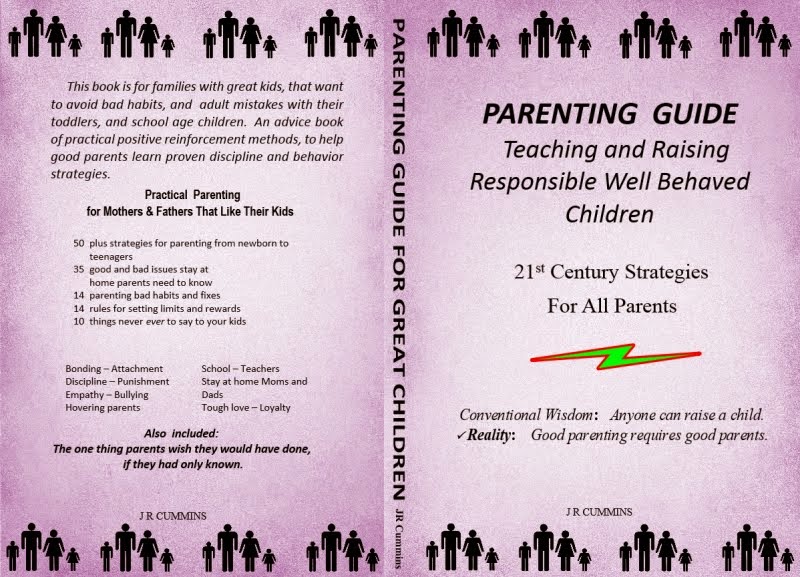✔ Reality: You don’t want your children behaving like all the people around them.
The most basic of good manners are simply, saying please and thank you. We all want our children to display good manners, but they are not born with built in, socially acceptable behavior. They look to everyone around them for hints how to act. Parents provide the number one good examples with siblings, peers and TV filling in the bad example voids.
Children usually want to act in a way that showers them with attention, and that is the problem. At certain ages, they do not really see much difference between bad attention and good attention, for them any attention is desirable. As parents, we need to set the correct example, and practice what we preach, but that’s not enough. Parents must downplay their reactions to unacceptable behaviors, (manners) and show enthusiastic attention for desirable behaviors (manners). Youngish children will quickly learn the program, and good manners. Unfortunately, the desire for attention is strong, and children are smart, so they will save powerful attention getting misbehaviors for later. For example, using smutty toilet talk gets a quick negative reaction, and many times the attention is exactly what is wanted, so parents should be quick to enforce a minor disciplinary action. If the smutty behavior continues, the punishment should escalate until the pain is worse than the attention is positive. ✔ In no way should the last sentence be construed as suggesting you beat your kids, just be sure to address the fact that you don’t approve of their behavior.
Most children want to act correctly, and good manners are included, but not always. If you suspect a spate of bad manners are to attract attention, the cure is easy for toddlers, as said, give them more attention for good manners and the silent treatment for bad manners. When they get a little older, simply remind them how you expect them to act. Older yet, needs a stronger message. By all means, tell them what they are doing that is wrong, (stop the @@## swearing) and If they don’t get on board with good manners immediately, some sort of discipline is in order. Remember, their actions are to get attention, so the discipline must deny them attention (exclusion works wonders). They will come around right away, but be forewarned, they have discovered a button of yours to push to get your attention, a button that may get pushed when you least want it pushed.
For manners, type slip ups, an occasional reminder meant to teach and not embarrass should be all that’s needed most of the time. Don’t forget not to laugh when they burp, or they will be burping the alphabet for your friends. The same goes for other gases.
Some life experiences are so rare that your children may not have had you to role model. They may never have seen a Polio victim, someone suffering from MS, or disfiguring injuries, so the urge to stare is quite strong. When you become aware that a staring opportunity is about to present itself, you can head it off by explaining in a matter of fact way what they are seeing, or about to see. Mention that it is not polite to stare, and that the person does not want to be stared at. Most importantly, how you react is your child’s cue how they should act. When children stare, it is because they are curious, so they should not be punished for staring.
Older kids develop sarcasm, eye rolling, and smart ass talk. It’s like a cold virus, picked up at school or peers, and brought home on dirty hands, except washing won’t get rid of it, and bar soap in the mouth is now considered abuse. Never the less, when it infects your child, the best course, is to let it run its course, then your child may have immunity. If it gets out of hand, you need to step in early and enact consequences. For a toddler it may mean removing him from the room, for a teen perhaps losing the car will get the message across that you do not tolerate disrespect, directed towards you, or others.
Lastly, look in the mirror, do you roll your eyes? Do you make snide sarcastic remarks? ✔ You know it is not fair to punish them for behavior you apparently approve in yourself.

No comments:
Post a Comment